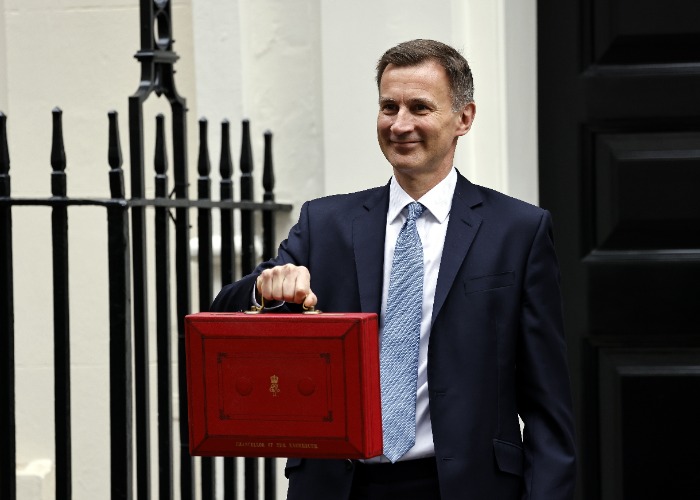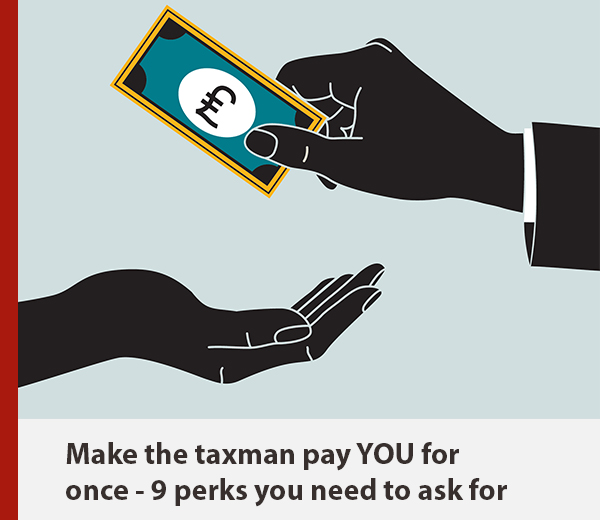Opinion: this 'low tax' Budget hammers those who are struggling

Despite talk of a 'lower tax' Budget, many will be left worse of as a result of the chancellor's announcements – with pensioners almost £1,000 poorer.
At first glance, yesterday’s Budget was a cause for celebration as the chancellor seemingly unveiled a raft of measures that would leave both households and the entire economy far better off.
Backed by cheers from his party, a confident Jeremy Hunt declared this was a Budget to ease hardships for cash-strapped Brits and bring prosperity for UK business.
Among the most headline-grabbing announcements were a 2p cut in National Insurance rates for workers, freezes to Alcohol and Fuel Duty, and changes to the income threshold for Child Benefits.
"We stick to our plan with a Budget for long-term growth; it delivers more investment, more jobs, better public services and lower taxes,” Hunt told MPs.
But is the picture as rosy as the chancellor would like us to believe?
As always, closer inspection uncovers a different, or at least more nuanced, story.
Tax cuts… too good to be true?
Let’s start with Hunt’s announcement on NI.
In one of his most widely anticipated moves, the chancellor revealed that the Government would reduce National Insurance contributions for employees by 2p from April, which he claimed would save the average worker £450 per year.
This follows an identical cut in last year’s Autumn Statement.
While a £900 saving is undeniably good news for workers, we need to keep it within the context of the other hits households have taken over the past couple of years.
And when you consider that official forecasts put tax at 37.1% of UK national income – the highest level since 1948, the chancellor’s move perhaps feels a little less generous.
The devil is in the detail
As we reported in our initial Budget coverage, many of the chancellor’s announcements seem to be giving with one hand while taking with the other.
For while NI is falling, households will be feeling the impact of frozen personal tax thresholds, including Income Tax, which will remain in place until at least 2028.
Put simply, this stealth tax has pushed many workers into a higher tax bracket and millions more will follow as wages inevitibly rise.
The Office for Budget Responsibility (OBR) predicts that the move will mean that 3.7 million more people will be paying Income Tax and another 2.7 million pushed into the Higher Rate tax bracket by 2028.
In even more uncomfortable reading for the Government, think tank the Resolution Foundation has released its Budget analysis which concluded that, despite £8 billion of election-year tax cuts, the Budget will also mean £38 billion in tax hikes and spending cuts.
Particularly bad for pensioners
This sleight of hand results in a mixed bag for workers.
According to the Foundation's analysis, some 55% of workers will be better off, while lower and higher-earning taxpayers will see their taxes rise.
When little more than half of workers being any better off at all, this Budget can hardly be considered generous, especially when lower earners fall into the worse-off category.
And the situation is far more stark for pensioners, who won't benefit from the NI cut.
According to the Foundation, eight million taxpaying pensioners will face an average tax hike of £960 per year as a result of the freeze in personal allowances.

Handouts benefitting the wealthiest
Conversely, some of the handouts announced seem likely to only benefit the well-off.
In one of his more surprising moves, the chancellor announced that the higher rate of Capital Gains Tax will drop from 28% to 24%.
On top of this, the introduction of a new British ISA will allow savers to invest an additional £5,000 tax-free into UK business, meaning those investors with the funds to do so can now shield a total of £25,000 a year from the taxman.
The final verdict
With much of what the chancellor unveiled yesterday having been widely predicted for weeks and even months, Hunt’s second Spring Budget contained very little to take commentators by surprise.
And although there may have been a few attention-grabbing tax giveaways, many of these will be swallowed up by stealth tax rises via freezes to tax thresholds.
All of this could leave many Brits even poorer as the Government’s tax receipts soar.
Comments
Be the first to comment
Do you want to comment on this article? You need to be signed in for this feature